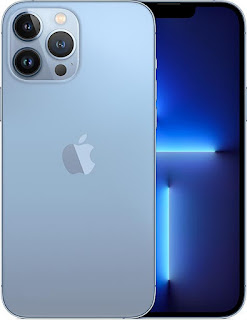Why Is Apple So Expensive?
Why Is Apple So Expensive?
A phone is just a phone, and a computer is just a computer, right?
Jobs was famously obsessive over details. problem. On a Sunday, indeed. “It takes a lot of hard work,” Jobs said in a late-career interview, “to make something simple, to truly understand the underlying challenges and come up with elegant solutions.” And indeed, every chic rounded edge, brushed-metal finish, or optimally clacky keyboard sound on every Apple device takes time and investment, not least in precision machinery to manufacture these shiny doodads at scale. Looking and feeling so effortless actually takes a vast amount of effort and generation-defining work from the likes of legendary Apple designer Sir Jony I've. But it does not just look. As Apple’s very first marketing brochure, published in 1977, succinctly put it: “Simplicity is the ultimate sophistication.” Thus, in addition to their great beauty – or flex value, whatever you like to call it – Apple products are also much simpler to use and get your head around than rival phones or computers. Apple products' just work' is the parlance of infuriating Apple fanboys everywhere. This oft-used one-liner bumps up against a frequent objection from Apple skeptics, who insist that an identical specification computer, or phone, can be had for less money from other brands or on other platforms. If you’re happily cobbling together your own Frankenstein’s monster of a PC, the argument goes, that with the right motherboard, memory, and graphics card, you can save big bucks. Well, perhaps you can. But that arrangement obviously requires a nuanced understanding of hardware, and a willingness to put up with tinkering. Not to mention all the energy and attention you’ll need to lavish on, just for starters, keeping on top of all those pesky driver updates for your patchwork mongrel machine. With an Apple computer, on the other hand, things really do ‘just work’. Apple devices frequently update to tackle security issues and make general, subtle improvements in the background and interface without you needing to lift a finger. As such the ticket price may well be higher on a Mac. But if you value your time, and you don’t like a hassle, Macs are worth it. In fact, many analysts, even Apple skeptics, will admit that comparing a new MacBook Air with a custom-built machine isn’t a fair test, because when outfits like Dell or HP actually do release a ‘premium’ hi-spec PC the prices are nearly indistinguishable from those of a Mac. And besides, it’s worth noting at this point that Apple doesn’t bother putting out budget machines. Sure, Apple phones aren’t as customizable, and their computers aren’t cut out for hardcore gaming. But most of the public aren’t fragging noobs or mining bitcoin. Neither do most users have time to troubleshoot or navigate arcane menus to tweak their devices. They want a phone or computer or a tablet that, at the risk of sounding like a broken record... just works. And lest we forget the criticality of customer service, especially to an end user who isn’t especially tech-savvy. Apple’s network of stores and friendly Genius Bar format is legendary among fans for its accessibility and cost-effective service, not least when Covid forced the company to successfully move their entire service division online. That level of attention is invaluable to millions, and providing it doesn’t come cheap. Neither does the fact Apple produce not only hardware – almost everything, even down to the CPU in the latest models – but also software. So unlike a PC developer, who has to assume their product will be running on multiple spec machines and all manner of configurations with all the compromises that entails, a Mac or iOS app developer knows the hardware inside out and can code accordingly. And the software pre-bundled with most Macs is pretty impressive, with dazzlingly slick, consistently updated operating systems and powerful tools like GarageBand, iWork, iMovie, and more. So for the end user, who wants to make and cut together a quick home movie, or record a simple beat with the gear they have to hand, Apple machines are powerful and straightforward. No wonder professionals and creatives swear by them. And that’s before we even get to privacy. Your data is part of the business model on an Android phone running Google. Meaning every move you make on your phone is monetized by the powers that be. Apple is different. The Cupertino colossus might use your data to improve their services, in a strictly limited and transparent fashion, but they’re not out to make a fast buck selling your info on to third parties. How much is your privacy worth, not just today, but in a year, five years, or ten years from now?


Comments
Post a Comment